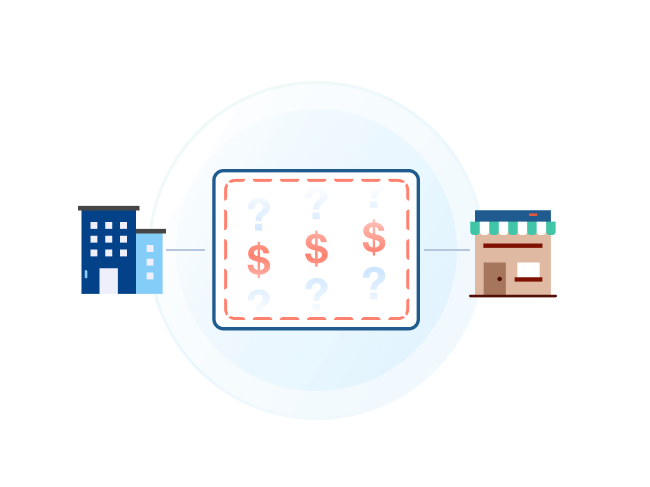The Problem with VANs for EDI and B2B Integration
 Value-added networks, or VANs, offer a compelling pitch: We’ll handle all your EDI (electronic data interchange) integration and B2B communication for you. For some organizations, especially smaller companies without technical expertise, this may indeed be the best approach. But VANs come with significant downsides that should be considered when making long-term decisions about your organization’s critical business infrastructure.
Value-added networks, or VANs, offer a compelling pitch: We’ll handle all your EDI (electronic data interchange) integration and B2B communication for you. For some organizations, especially smaller companies without technical expertise, this may indeed be the best approach. But VANs come with significant downsides that should be considered when making long-term decisions about your organization’s critical business infrastructure.
What do VANs actually provide?
VANs provide a managed IT consulting service to transfer and integrate your data with external parties like trading partners. Under the hood, this involves some simple conversions between file types and utilization of standard messaging protocols to ensure data is transferred securely and reliably.
VANs became popular as an alternative to in-house EDI integration implementation, promising to simply rid your organization of the need to think about it. As recently as ten years ago, this was the only option if your organization did not have a dedicated team of programmers and EDI experts to write and maintain custom EDI integration systems.
However, the landscape of available EDI solutions has evolved rapidly in the intervening decade. A simple fact rests like a fault-line at the center of the popularity of VANs: File conversion and file transfer are not inherently difficult tasks.
What VANs truly provide is the ability to harness standardized data transfer and transformation protocols. But many tools do this – the nature of standardized protocols is that they are widely adopted and implemented. In the modern landscape of data integration tools, VANs provide relatively little technical benefit.
What’s the problem with VANs?
VANs have many downsides, all of which are related to the nature of using managed services as part of your EDI infrastructure:
- Per-document fees can become cost-prohibitive at scale
- No guaranteed timetable for resolving errors in communication
- Slow turnaround for adding new partners or adjusting existing integrations
Per-document fees
As a service, VANs feel comfortable charging a per-document fee every time you need to send, receive, or integrate data with a trading partner. While this may work for a small company, problems can quickly arise for larger or future-conscious organizations.
As your business scales, the number of documents exchanged with trading partners increases exponentially. When your EDI licensing costs increase linearly with your document count, that same exponential growth applies to how much you pay for your VAN.
Additionally, per-document fees can make it challenging to budget accurately. Companies cannot typically predict how many B2B transactions they will need in advance, so it is difficult to recognize that a VAN license may become prohibitively expensive until it is too late.
Slow onboarding and updates
The services that VANs provide include onboarding new trading partners and updating the parameters of existing integrations. While it sounds convenient, it comes at the cost of not having control over the time it takes to establish these critical business relationships.
VANs typically service a wide array of clients with a single integration team, so the implementation of your specific projects may be delayed by an internal prioritization queue. VANs do not intentionally or maliciously slow down your new partner onboarding, but it is a potential outcome of the VAN business model.
Uncertain error resolution and support
Error handling and correction are crucial parts of the service that VANs provide. Unfortunately, this means that fixing broken trading relationships is entirely dependent on an external team.
Following the theme for trade-offs with VANs, this can be convenient for smaller companies that don’t have IT staff, but it comes at the cost of not being able to prioritize and focus internal resources on addressing critical problems.
What are the alternatives?
Self-service B2B integration platforms like CData Arc provide all the technical capabilities that VANs offer, including data transformation and transfer via standardized protocols. But these tools also enable your internal team to build their own no-code EDI automations, maintain full control over onboarding, monitoring, error handling, and updates.
Critically, self-service EDI tools are not black-box services that include per-document transaction fees. They are simply a piece of business software that you can purchase and use according to your own requirements.
While self-service tools do require implementation by your organization’s IT or EDI team, they simplify and streamline the technical challenges involved in B2B integration to ensure that your team does not need to write or maintain any code.
Finally, self-service tools offer the ability to track transactions and build custom reports and audits, giving you full visibility into the data your organization exchanges with trading partners.
Is self-service the way to go?
Like many modern software solutions, self-service EDI integration platforms often provide free trials. This enables businesses to build proofs-of-concept and evaluate if the self-service model works for them.
If you’re interested in avoiding the pitfalls of VAN subscriptions, CData Arc offers a free, fully-functional trial. Visit our getting started page to learn how to easily implement your own self-service EDI tool.
For personalized help with your specific B2B requirements, feel free to reach out to us at arcsupport@cdata.com.
